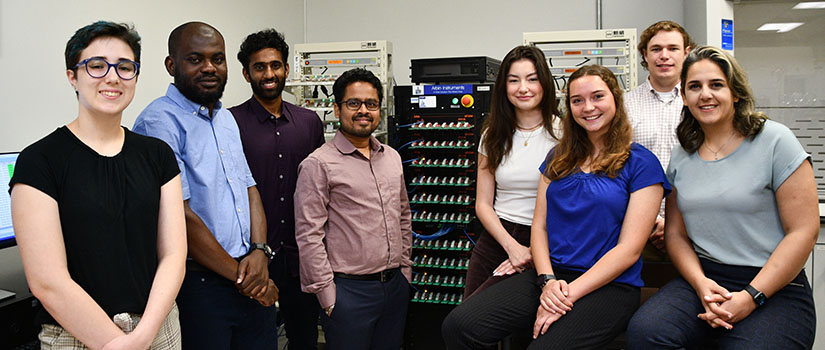Report on state of manufacturing finds misconceptions about manufacturing's future, and its role in the economic recovery
To deliver on the promise of manufacturing, Kennametal Inc. chairman, president and CEO Carlos Cardoso said during an appearance at The National Press Club on Jan. 9, 2012 that he and his industry peers need to more clearly articulate their success stories and educate young workers about viable manufacturing careers.
A new poll conducted by Kennametal, a global manufacturing leader in tooling solutions, engineered components and advanced materials, reveals that Americans of all ages are unaware that manufacturing is leading the economic recovery, and believe manufacturing jobs are unavailable.
“Contrary to public perception, the manufacturing industry is leading the economic recovery,” commented Cardoso. “It is time for our industry to reintroduce itself to the American people in a manner that encourages them to understand the vitality and importance of U.S. manufacturing to the global economy.
Cardoso’s presentation, Manufacturing: Deliver the Promise, also promoted and discussed the availability of well-paying, highly skilled manufacturing careers in the 21st century.
“The U.S. manufacturing sector has been steadily growing and right now, 600,000 manufacturing jobs are available,” Cardoso said. “Most of these positions require specialized skills and education, and as manufacturers, we have a responsibility to educate people about these opportunities and build the manufacturing workforce of the future. At Kennametal, we take this seriously and are helping to deliver the promise of manufacturing today through our actions.”
To reinforce Kennametal’s commitment, Cardoso introduced representatives from Greater Latrobe High School, a partner in the company’s Young Engineers Program. The program included a 15-week session at Kennametal headquarters in Latrobe, Penn., where students participated in classroom discussions, hands-on projects, and mentoring led by a team of Kennametal “innovators” drawn from engineering, marketing, production and other departments. The company recognized the program’s first graduating class at a special ceremony on Jan. 4, 2012.
“This program is just one of many educational initiatives we have at our locations globally that seeks to attract more high school students into engineering and manufacturing careers, helping to ensure the sustainability of our industry and provide steady employment for future generations,” Cardoso said.
Additionally, he called on fellow manufacturers to join Kennametal in delivering the promise of manufacturing by sharing their success stories and innovative solutions for building the manufacturing workforce of tomorrow.
“Together, we have the power to drive solutions, dispel these misperceptions about manufacturing and rebuild confidence in the industry,” he continued.
Watch the real-time webcast of Manufacturing: Deliver the Promise at: https://www.visualwebcaster.com/Kennametal_Delivering_the_Promise.
The Kennametal poll demonstrates a wide gap between public perception of manufacturing and the facts about its current strength and future viability. It reveals that just 9% of Americans see manufacturing as a bright spot in the economy.
In addition:
- Only 11% believe manufacturing is growing;
- Just 17% think manufacturing has a positive outlook in the future; and
- 68% feel the perceived lack of manufacturing jobs is more significant than the lack of training required to fill those jobs.
Cardoso, however, cited results from a November 2011 Manufacturers Alliance for Productivity and Innovation (MAPI) forecast that predicted manufacturing production will outpace the overall economy and grow 3.4% in 2012, adding 170,000 jobs.
Manufacturing in the future
A full 71% of those polled in the Kennametal survey would not recommend a career in manufacturing to young Americans, primarily because they believe no manufacturing jobs are available. In addition, nearly two-thirds believe that U.S. schools don’t present manufacturing as an option.
However, 65% of respondents believe manufacturing jobs are desirable, see them as well-paying and view them as high-tech. Nearly 70% believe manufacturing jobs are important for domestic job creation.
Cardoso noted that the Kennametal poll reinforces findings of several recent surveys. According to the Manufacturing Institute and the National Association of Manufacturers, approximately 2.7 million manufacturing workers will be retiring in the next 10 years. As a result, the demand for skilled labor in manufacturing will increase, but many jobs could go unfilled because workers lack necessary skills for these positions.
Furthermore, the Skills Gap study, conducted in July and August 2011 by Deloitte Consulting LLP and the Manufacturing Institute, found 67% of manufacturers surveyed reported a shortage of available, qualified workers. As many as 600,000 jobs are unfilled, in spite of the fact that the country is facing an unemployment rate near nine%.
Manufacturing: A call to action
The Kennametal poll also reveals a lack of awareness about manufacturing news. Cardoso said more than 70% of respondents either don’t remember or don’t know the last manufacturing story they’ve seen. He noted that Americans still view manufacturing jobs as desirable, but incorrectly believe these jobs aren’t available or don’t require much skill and they don’t want their children to pursue them because of the fragile state of the economy.
“It’s clear the American manufacturing sector needs to do a better job of communicating its successes and opportunities,” he said. “Today’s discussion, Manufacturing: Deliver the Promise, is merely our first step in a more focused, long-term effort to increase awareness and remind the country that manufacturing is not only part of its past, but also its present and limitless future.”



